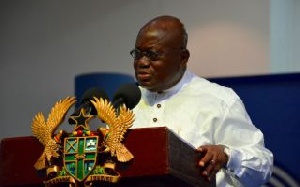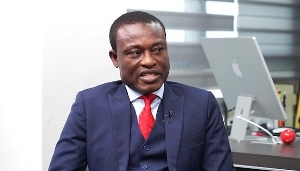President Nana Addo Dankwa Akufo-Addo has said he will not allow Independent Power Producers (IPP) to rip Ghanaians off although his government will provide the needed atmosphere for the private sector to flourish in the country.
Mr Akufo-Addo said this at the sod-cutting ceremony for the construction of an LPG-powered power plant in Tema on Thursday 27 April.
In his address, Nana Akufo-Addo said: “There are no arguments today about the participation of the private sector to meet the growing demand for electricity [but] the arguments and anxieties have been centred on the nature of the agreements that have been made with private producers. In my well-being, many of such agreements have been negotiated during emergency periods and times of power shortages. Dare I say, however, that, thus far, it looks like the government of Ghana has not fared very well in these negotiations with Independent Power Producers (IPP).
“The government I lead is a natural cheerleader for the private sector but does so within the framework of protecting the public purse, and so I see no contradiction in that. I believe it is possible for the power producers to make a reasonable profit with a fair agreement that does not sink the fortunes of the country. That is wholly acceptable. Let me state it again clearly here: we shall do all we can to provide the enabling environment for the private sector to flourish in Ghana, but we shall also protect the public interest every inch of the way.”
Mr Akufo-Addo noted that the erratic power supply that hit the country for close to four years had affected “all aspects of our lives”. According to him, businesses have been destroyed, individual and family lives have been put under severe stress but “in true Ghanaian style we have made light of a deadly serious and depressing situation with jokes”, adding: “But we all know this is not an experience we want to continue for an extra day.”
To this end, he noted that the LPG-powered power plant project was consistent with his vision to make the country self-sufficient in electricity for industrial and domestic use to derive the socio-economic development of the country. “This power project will, therefore, be one of several initiatives that would be introduced along the power supply value chain in order to achieve a cost-effective, efficient, and sustainable energy sector,” he added.
Business News of Thursday, 27 April 2017
Source: classfmonline.com

















